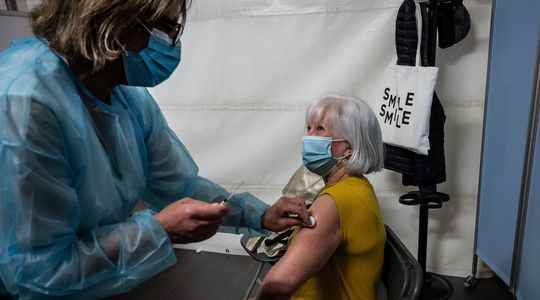Who are the people hospitalized despite a two-dose vaccination schedule? French researchers have asked themselves the question in a large study on the vaccinated population in France. Scientists from the Epi-Phare group, which is made up of the National Medicines Safety Agency and the National Health Insurance Fund, observed the hospitalizations of fully vaccinated people for several months. Over 28 million people were included, making this study one of the largest in the world.
The first observation is clear: the vaccine provides very strong protection against serious forms of the disease. Of the 28,031,641 people with a full vaccination schedule as of July 31, only 5,345 have been hospitalized and 996 have died in hospital due to Covid-19. “This frequency is very low, it is a new scientific confirmation of the vaccine efficacy that we talk about so much”, underlines the professor of epidemiology and director of Epi-Phare, Mahmoud Zureik. The study focused on all people who had a complete vaccination schedule with vaccines from Pfizer-BioNTech, Moderna or AstraZeneca in France between January 1 and July 31, 2021.
In this population of vaccinated subjects, the risks of hospitalization and hospital death for Covid-19, which scientists call “residual risk”, are associated with several factors. On the one hand, this risk “appears strongly associated with age, and the taking of immunosuppressants or oral corticosteroids”. But also “the presence of certain comorbidities, in particular kidney or lung transplantation, kidney failure on dialysis, cystic fibrosis, active lung cancer, trisomy 21 and mental retardation”, note the authors of this report published this Friday.
Kidney transplant patients, very at risk
At first glance, these data are relatively well known. “The clinical rise in the field, we know of course, we hear it in the statements of caregivers, but this study confirms their statements and quantifies this at the level of the total population, from a scientific point of view”, specifies Mahmoud Zureik. This work allows a precise detail of the risks represented by the virus in the categories often described as “fragile”. An important clarification to better take into account the protection of these populations during the epidemic.
Thus people treated with immunosuppressive drugs and who respond weakly, or not at all to vaccination, even vaccinated, are among the categories most at risk from Covid-19. An important observation when these treatments are given to several types of patients, such as transplant recipients. The Epi-Phare report shows that vaccinated kidney transplant patients were 57 times more at risk of hospitalization for Covid-19.
The report also shows that among those vaccinated and hospitalized, less than 10% had no comorbidities. In general, vaccinated patients with a single comorbidity are twice as likely to be hospitalized for Covid-19 compared to vaccinated patients with no identified comorbidity. “And the probability of being hospitalized increases a lot with the number of comorbidities. Among the hospitalized there are 27% of people who have at least five comorbidities, it is very important”, underlines the director of Epi-Phare. This group of people also represents 39% of those vaccinated and died for Covid-19 in hospital.
The most disadvantaged are the most exposed
Scientists have also been interested in the socio-economic realities of the epidemic. Result: the poorest people are more exposed to the virus, even vaccinated. “It is a constant in all our reports: people who live in the most disadvantaged municipalities are more at risk”, explains Pr. Zureik, “the socio-economic environment is a major determinant of health, we see this for cancers, heart disease, and unfortunately the Covid-19 is no exception to this rule”. This study thus underlines that vaccinated persons who resided in the most disadvantaged municipalities had an increased risk of approximately 30% compared to vaccinated persons who resided in the most privileged.
If the study does not concern the booster dose and did not take into account the impact of the Omicron variant, “it is reasonably believed that there will be no difference in the results and this will remain to be confirmed by the future studies”, assures Mahmoud Zureik. More than a year after the start of the vaccination campaign, these results once again show the interest of the vaccine in preventing serious forms of the disease, but while there are still an average of 282 daily deaths linked to Covid, they call on us not to leave aside the populations most exposed to the virus.
